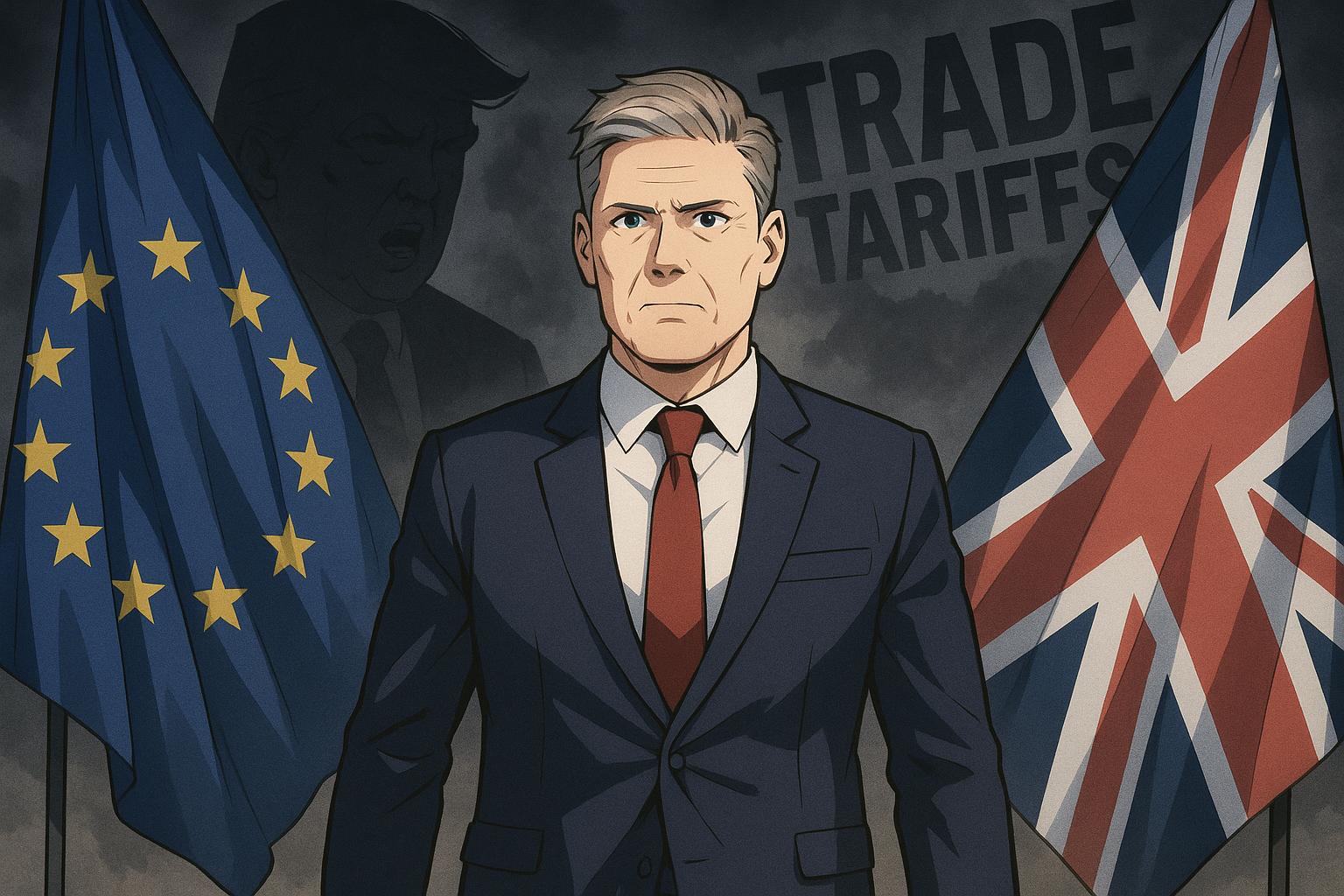Sir Keir Starmer faces mounting pressure as he navigates the complex terrain of Brexit negotiations against a backdrop of escalating trade tensions initiated by Donald Trump. The U.S. President has recently threatened to impose a staggering 50 per cent tariff on all goods exported from the European Union, a move that could reverberate through the UK economy. This ultimatum was issued amid renewed trade discussions between Washington and Brussels, with Trump warning that he could implement these tariffs as soon as next month.
Starmer's unveiling of a proposed EU-UK 'reset' deal this week has sparked controversy, with critics expressing concerns that this could signify a retreat from the principles of Brexit. The Labour leader's plan is perceived by some as a potential precursor to reintegrating Britain into the EU's customs union or single market. Such a shift could subject the UK to the same punitive tariffs imposed on EU exports, thereby compounding the financial implications. Under this arrangement, Starmer has agreed to align UK food standards with EU regulations—the Sanitary and Phytosanitary Agreement (SPS)—and made concessions regarding fishing rights, with EU trawlers gaining access to British waters for another 12 years. Additionally, the deal includes a youth mobility scheme that may grant residency rights to tens of thousands of Europeans in the UK.
Critics like former Conservative leader Sir Iain Duncan Smith have labelled this agreement a "surrender pact," suggesting that it jeopardises the UK's bargaining position and sovereignty in international trade discussions. The levies threatened by Trump may serve as a stark warning that closer ties with the EU could lead to economic repercussions. Market reactions have already shown signs of volatility, with the FTSE 100 falling by 0.24 per cent and major European indices dipping more significantly; Germany’s Dax decreased by 1.5 per cent while France’s Cac 40 slipped 1.7 per cent. Analysts are suggesting that Trump's aggressive trade rhetoric has undermined previous optimism surrounding negotiations and trade relations.
The stakes are high, as EU exports to the U.S. were valued at approximately €500 billion in the last year, with Germany alone contributing around €161 billion. Key sectors, including automotive, aerospace, pharmaceuticals, and food and drink, could be dramatically affected by these tariffs. Should Trump follow through on his threats, the automotive industry—a weak link already feeling the pressure from existing tariffs—could see further complications, potentially destabilising major manufacturers such as Audi and Porsche. The economic ramifications are dire; experts warn that such tariffs could shrink the EU’s GDP by 0.5 per cent and necessitate urgent diplomatic negotiations to stave off a full-blown trade war.
In this turbulent climate, some senior UK and EU diplomats are urging Starmer to adopt a more aggressive stance against the trade threats from Trump. While his administration attempts to dissuade Trump from implementing tariffs on key UK industries—particularly cars, steel, and aluminium—the overarching sentiment remains one of caution. Starmer appears to be taking a tactical approach, weighing his response in light of the initial impact of any tariffs imposed.
Foreign Secretary David Lammy has also voiced concerns, advocating for a proactive engagement with international leaders to adapt to the evolving global economic landscape. As trade negotiations continue, there is a palpable sense of urgency to reset the UK’s relationship with the EU, creating a more favourable environment that could mitigate the risks posed by these staggering tariff threats.
As both leaders navigate these precarious waters, the pursuit of stable and constructive trade relations remains more crucial than ever for Britain’s economic future.
Reference Map:
- Paragraph 1 – [1], [2]
- Paragraph 2 – [1], [3], [4]
- Paragraph 3 – [2], [5], [6]
- Paragraph 4 – [3], [4]
- Paragraph 5 – [5], [7]
Source: Noah Wire Services
